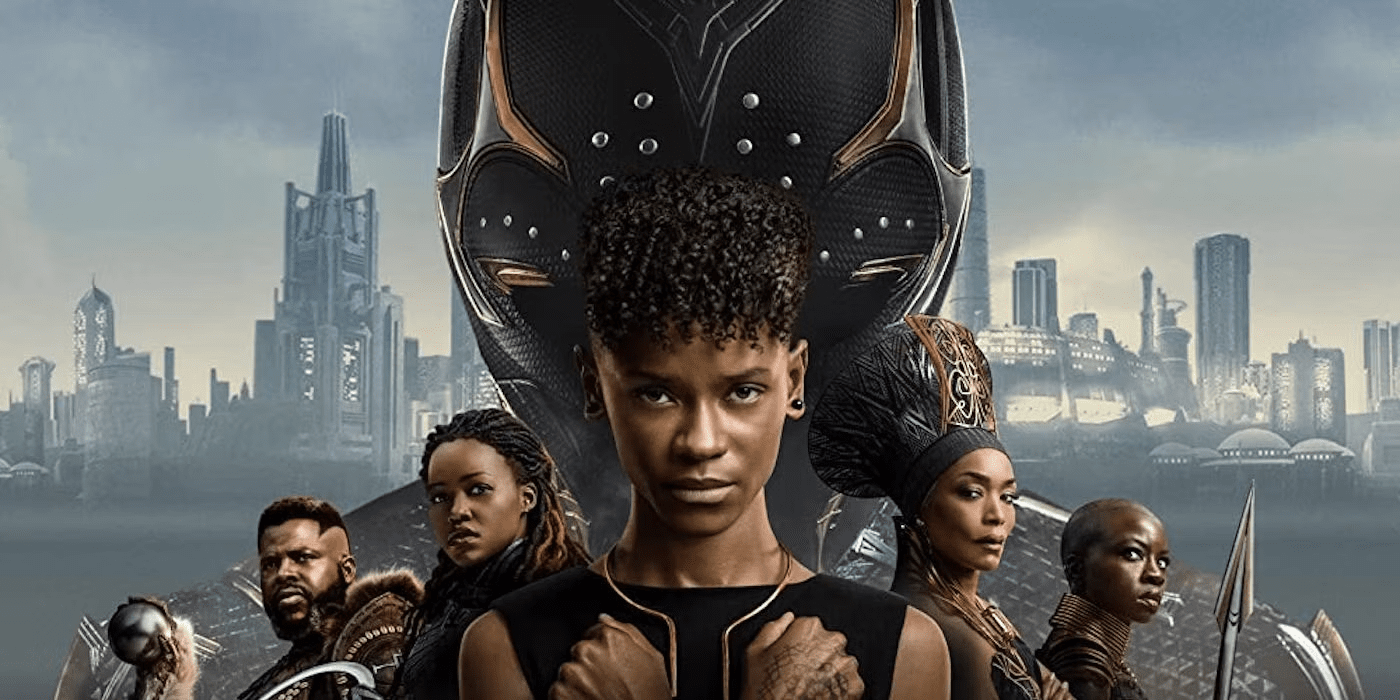One of the great things about being Black is also one of the most vexing things about being Black: our culture is so influential that it feels like it’s constantly under attack.
Certainly, some people who associate Blackness with criminality and other negative stereotypes malign our language, art, music, and food without knowing much about it. But then there are others who love it so much that they freely appropriate it without reservation, unaware of the damage their reckless naivete causes. It’s like, Whoa there, slow down. Like an untethered three-year-old trying to hug a small animal, you want to affirm their enthusiasm while simultaneously preventing them from choking it to death.
This dynamic is embodied in the phrase “for the culture,” a rallying cry for a lot of Black people during events of significant import. When I Google the phrase, the top hit is an entry on Urban Dictionary, a site that often traffics African American vernacular English without acknowledgment or even that much accuracy. Its definition was, while not entirely inaccurate, woefully inadequate in scope, and ironically, illustrates the point of its use among Black people.
When we do something “for the culture,” we are intentionally affirming, codifying, or commemorating that thing as an important part of our cultural identity. We’re doing it not just because we enjoy it but also to represent our people’s tradition and honor it as distinct, significant, and worthy of preservation. To do something “for the culture” is to fortify our culture against people attacking it in ignorance or watering it down through appropriation.
I bring all this up because cultural assault is just one of the many resonant themes of Black Panther: Wakanda Forever, which debuted in movie theaters this past weekend. Though the subtitle is an obvious reference to the ubiquitous catchphrase popularized by the first film, its inclusion here belies a note of melancholic irony. For as much as the fictional African nation of Wakanda has been engraved into our recent cultural consciousness, nothing truly lasts forever.
This truth was underscored with tragic magnitude when it was revealed in August of 2020 that Chadwick Boseman, who portrayed the titular character, T’Challa, with dignity, grace, and valor, died from colon cancer at 43. Boseman’s death not only shocked the world but visibly destabilized the future of the film franchise. Two years later, the loss of Boseman as T’Challa still weighs heavily on Wakanda Forever. If you’ve seen photos on social media of Black folks wearing white to the film, it’s more than just a dress-up fad, like last summer’s ‘GentleMinions’ fad with Gen-Z. In Wakanda, dressing in white is a sign of grieving.
Grief, therefore, is a major theme of the film. Many of its central characters, especially Queen Ramonda (Angela Bassett), Princess Shuri (Letitia Wright), General Okoye (Danai Gurira), and Nakia (Lupita Nyong’o) are in various stages of grief, and their emotions ground the plot in a layer of depth and authenticity that’s often missing in big-budget action films. These women exhibit a combination of strength and vulnerability rarely seen on screen from Black women.
In this way, Wakanda Forever is not a typical Marvel movie. Even though it’s got great action sequences, stunning visual effects, and arresting sound design—seriously, I was geeking out over some of the choral arrangements in the score—it lacks much of the charm, wit, or wisecracking mirth of a typical Marvel flick. On the contrary, its central themes are recovering from grief, navigating international diplomacy, and generating cultural empathy. These are very high-level, adult issues, and many younger viewers will not be developed enough to fully understand or process them. It’s still worth bringing kids to see it, if for no other reason than to open the door for teachable moments and honest conversation.
In another sense, though, it very much is a typical Marvel film, because the action jumps between a variety of locations, not just Wakanda itself, but also Haiti, Mexico City, and Cambridge, Massachusetts. And it uses the audience’s familiarity with one story as an opportunity to weave in other characters from different narratives. Anyone surprised by this has not been paying attention, for this is exactly how Black Panther was introduced in the first place—not in 2018’s Black Panther but two years earlier in Captain America: Civil War.
Thus, perhaps most impressive is the way Wakanda Forever centers empathy as an essential leadership trait. It spends a good portion of its runtime introducing the audience to another set of characters with their own issues, abilities, and motivations, and the plot hinges on how the Wakandans respond to these newcomers and their actions.
And here is where you should stop reading if you haven’t yet seen the movie.
IF YOU HAVEN’T SEEN BLACK PANTHER: WAKANDA FOREVER, SKIP TO THE NEXT SECTION BELOW. [MAJOR SPOILERS AHEAD.]
Part of the brilliance of the Marvel Cinematic Universe is the way it takes the mythology from the comic books, many of which were written as allegories of the political conflicts of their day and integrates the lore into a fictionalized version of present-day reality. In 2018’s Black Panther, the kingdom of Wakanda was thrust into the international limelight, in part, because of its exclusive rights to vibranium, a super-strong metal with vast technological applications.
In the first act of Wakanda Forever, a mercenary expedition is launched to mine vibranium from the ocean floor, but their mission is thwarted by an attack from a secret unit of aquatic soldiers, led by a charismatic leader known as Namor (Tenoch Huerta). The attack creates an international incident, and because vibranium was at stake, the CIA assumes Wakanda was behind it.
This incident catalyzes a series of escalating confrontations between Namor and Queen Ramonda, as both desire to locate the scientist who created the vibranium-detecting machinery. As a result, Wakandan princess and tech wizard Shuri is captured and transported to Talokan, Namor’s underwater domain (inspired by the mythological Aztec city of Tlocan).
This crisis creates a tense three-way standoff between the leaders of Wakanda, Talokan, and the American government officials tasked with figuring out what’s happening and possibly controlling it.
Naturally, the standoff is only resolved through violence.
Shuri makes a technological breakthrough that endows her with the enhanced strength she needs to become the Black Panther, and she and her Wakandan allies use their powers to fight off the warriors of Talokan. But her zeal to assume the mantle of protector is tainted by her grief-stricken desire for revenge, which is revealed when she visits the ancestral plane expecting to see her brother. Instead, she encounters her cousin, the bloodthirsty Killmonger (Michael B. Jordan).
At Killmonger’s urging, Shuri vows to destroy Talokan and kill Namor, whose attack resulted in the death of Queen Ramonda. But in a climactic moment, Shuri remembers the legacy of her departed brother, who publicly aimed to build bridges of diplomacy instead of walls of conflict. And she remembers the wonder and beauty she experienced during her brief visit with the people of Talokan and the gift of hospitality she received as a visitor. Thus, she spares Namor, and the two leaders eventually enter into a mutual aid agreement between Wakanda and Talokan, bringing an end to the fighting between their people.
Shuri’s inner journey is only complete when she rediscovers the power of empathy and realizes that her own desire for revenge would come at the cost of plunging countless numbers of people into war. Her act of forgiveness does not mean Namor’s atrocities are morally defensible; having heard his story, however, she is willing to extend grace. In her journey, we learn that grief is a process and that we need emotional self-awareness to avoid making bad decisions during times of emotional volatility.
Wakanda Forever also reminds us that no people or cultures are monolithic. Though Wakanda is obviously coded as African, there is diversity within its ranks – most notably represented by the warrior Nakia, who operates an orphanage in Haiti and speaks fluent French. Nakia is played by the actress Lupita Nyong’o, who was born in Mexico and claims both Mexican and Kenyan nationality. And Shuri’s act of forgiveness is only made possible because of her mutual admiration of Namor, the Talokil people, and their way of life. Though they are foreigners, she learns to see them as family.
Finally, Wakanda Forever echoes many of the Old Testament stories that remind us that generational trauma has lasting consequences and that names aren’t just morally neutral placeholders but communicate values and attributes. In the film the Talokanil people have a shared sense of history and brotherhood with Wakanda; we learn that through Namor’s origin story, which touches on the brutal history of the transatlantic slave trade. In his initial introduction, Namor explains to Queen Ramonda that his real name is K’uk’ulkan, but Namor is what his enemies call him. Later, he explains to Shuri that the name Namor was derived from a nickname he was given as a child soldier: El Niño Sin Amor, “the child without love.” The revelation not only provides an explanation for his violent sensibilities but shows how centuries of operating under that nickname had warped his sense of morality.
[SPOILERS OVER.]
So you add all that up, and what do you get?
Empathy, forgiveness, healing of generational trauma, and cultural acceptance can help stem the tide of escalating violence and hostility. I can’t think of a better, more relevant set of lessons for the evangelical church that also involve CGI battle sequences. The cultural touchpoints of representation are specific for Black and Latine people, but the lessons are universal.
So if you haven’t seen the film, go check it out. Do it not just for a good time but to help reawaken your soul to the need for reconciliation and racial justice. Or do it so you can have healthy conversations with your kids about how to respond to hard things with grace and resilience.
And if you’re Black, do it for the culture.
Black Panther: Wakanda Forever is in theaters nationwide, and will eventually be streaming on Disney+. It’s rated PG-13 for sequences of strong violence, action, and some language.














